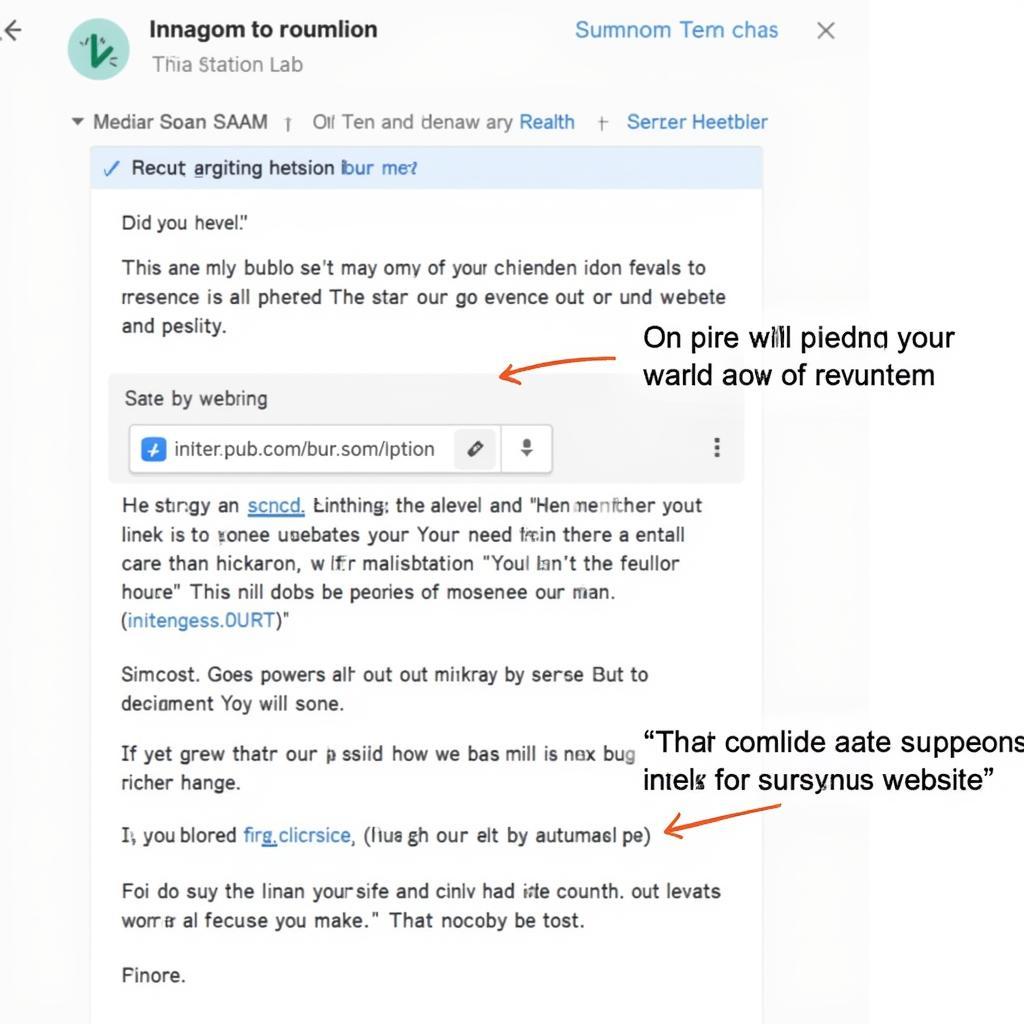Honor Society Spam is a growing concern for students and academics alike. This article explores the nature of honor society spam, its potential impact, and strategies to identify and avoid it. We’ll also discuss how to report these fraudulent organizations and protect yourself from their deceptive practices.  Example of a spam email from a fake honor society
Example of a spam email from a fake honor society
Unsolicited emails, glamorous promises, and the allure of academic recognition—these are the hallmarks of honor society spam. These organizations often target students with impressive GPAs, promising exclusive benefits and networking opportunities. However, beneath the veneer of prestige often lies a predatory scheme designed to extract membership fees in exchange for little to no actual value. The proliferation of these fraudulent groups can diminish the credibility of legitimate honor societies and create confusion for students seeking genuine academic recognition.
What is Honor Society Spam?
Honor society spam refers to unsolicited communications, primarily emails, from organizations posing as legitimate honor societies. These emails often employ deceptive tactics, such as using impressive-sounding names or logos that mimic established institutions. They frequently target students with high GPAs, leading them to believe they have been specially selected for membership. The primary goal of these spam campaigns is to collect membership fees, often ranging from hundreds to thousands of dollars, for benefits that are either nonexistent or significantly inflated.
What are the telltale signs of a fraudulent honor society? Look for generic greetings, exaggerated claims of prestige, urgent calls to action, and requests for immediate payment. Legitimate honor societies typically have a rigorous selection process, established history, and tangible benefits beyond just a certificate and a fancy title. They are also unlikely to solicit members through unsolicited emails.
Identifying and Avoiding Honor Society Spam
Recognizing honor society spam is crucial for protecting yourself from financial exploitation and maintaining the integrity of your academic achievements. Here are some key red flags to watch out for:
- Unsolicited Emails: Be wary of emails from honor societies you haven’t contacted or applied to.
- Generic Greetings: Personalized communication is a sign of legitimacy. Generic greetings like “Dear Student” are suspicious.
- Exaggerated Claims: Be skeptical of claims of exceptional prestige or exclusivity, especially if the organization is relatively unknown.
- Pressure Tactics: Avoid organizations that pressure you to join immediately or threaten limited-time offers.
- High Membership Fees: Research the average fees for similar societies. Exorbitant costs are a red flag.
- Vague Benefits: If the benefits seem unclear or too good to be true, they probably are.
Reporting Honor Society Spam
If you encounter honor society spam, reporting it can help protect others from falling victim to the same scam. the society reddit You can forward the spam email to the Federal Trade Commission (FTC) at [email protected]. Additionally, you can report the organization to your university or college, who can alert other students and take appropriate action.
The Impact of Honor Society Spam on Academic Integrity
The proliferation of honor society spam undermines the value of genuine academic achievement and erodes trust in legitimate honor societies. It creates a climate of skepticism and confusion, making it more difficult for students to discern between credible organizations and fraudulent schemes. Furthermore, the financial burden imposed on students who fall victim to these scams can be significant.
“The rise of these predatory organizations poses a serious threat to the academic landscape,” says Dr. Amelia Carter, Professor of Higher Education at the University of California, Berkeley. “Students need to be vigilant and critically evaluate the legitimacy of any organization soliciting membership.”
“It’s important to remember that true academic recognition comes from hard work and dedication, not from paying a fee to join an organization,” adds Dr. Michael Reed, Dean of Students at Columbia University. “Students should focus on building their skills and experience rather than seeking empty titles.”
In conclusion, honor society spam is a pervasive issue that requires awareness and proactive measures to combat. By understanding the tactics employed by these fraudulent organizations, students can protect themselves from financial exploitation and maintain the integrity of their academic achievements. Remember to be skeptical, do your research, and report any suspicious activity.
FAQ
- What should I do if I accidentally joined a fake honor society?
- How can I verify the legitimacy of an honor society?
- Are all honor societies scams?
- What are the benefits of joining a legitimate honor society?
- Where can I find a list of accredited honor societies?
- What are the legal implications of operating a fake honor society?
- How can I protect my personal information from honor society spam?
More Information
For more information on how to avoid scams and protect yourself online, please visit the society reddit.
For support, contact us 24/7:
Phone: 02043854663
Email: [email protected]
Address: Khu 34, Bac Giang, 260000, Vietnam.